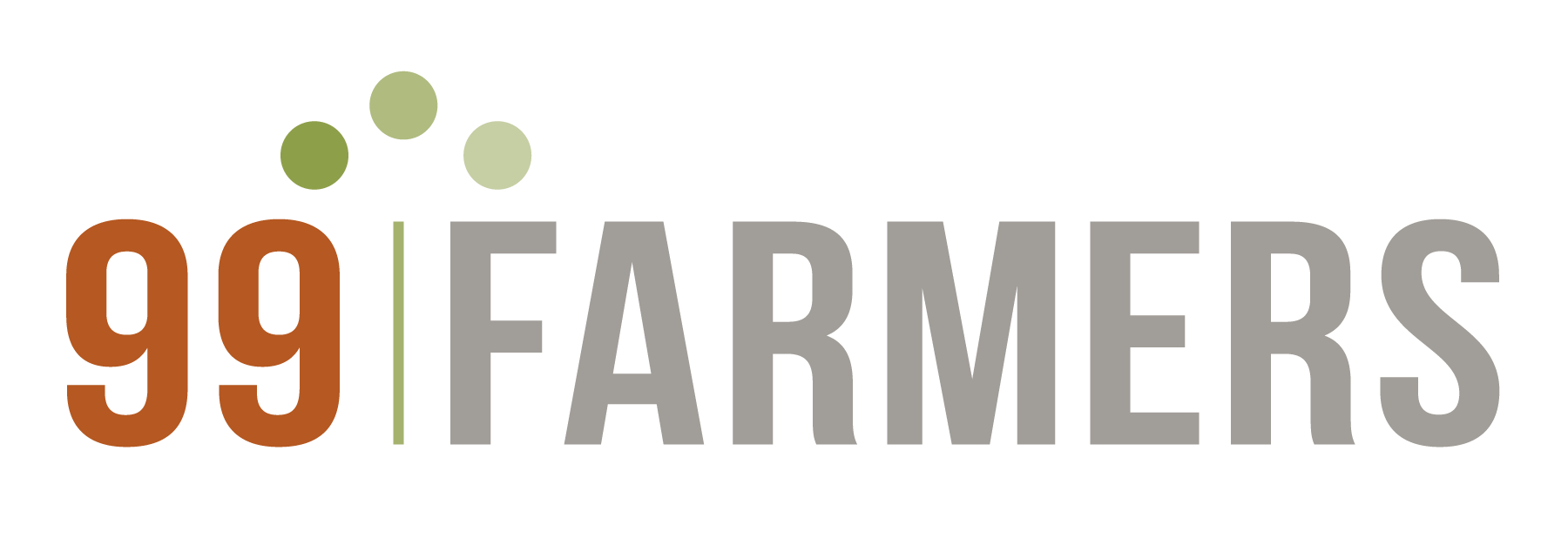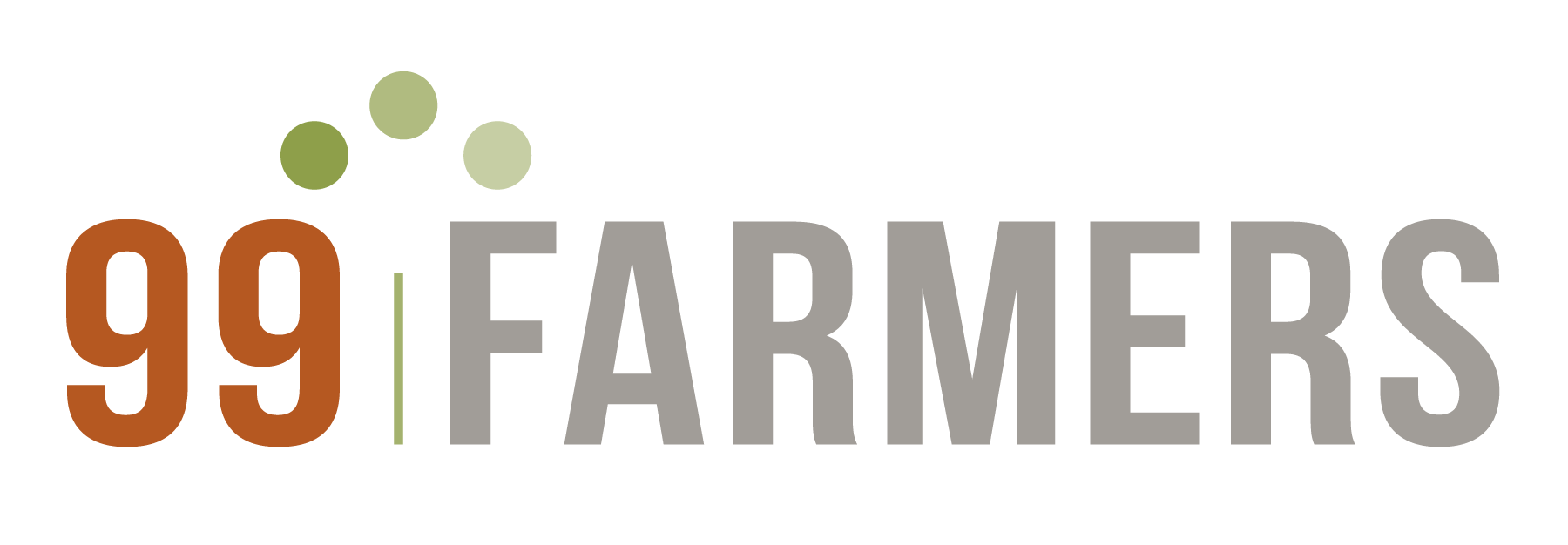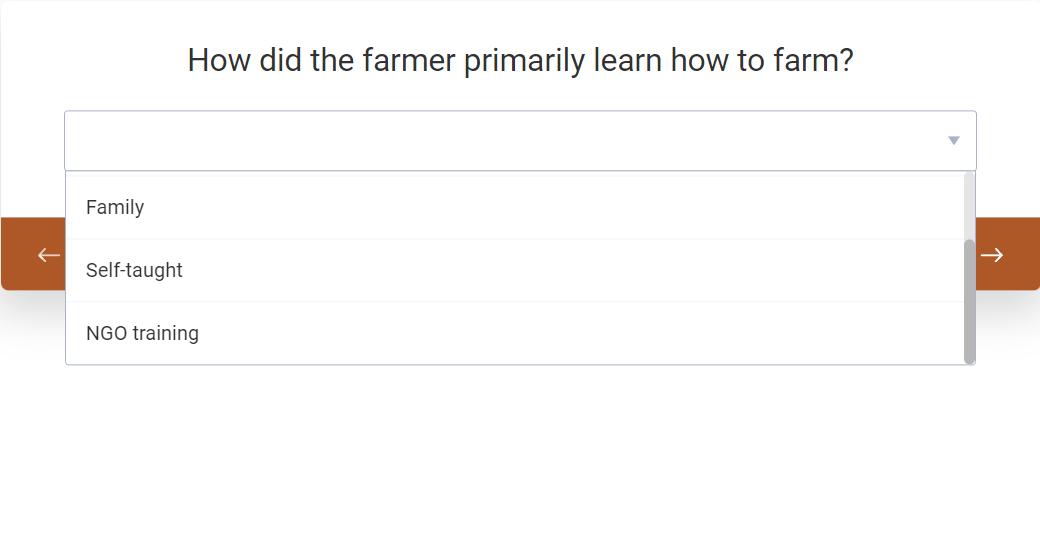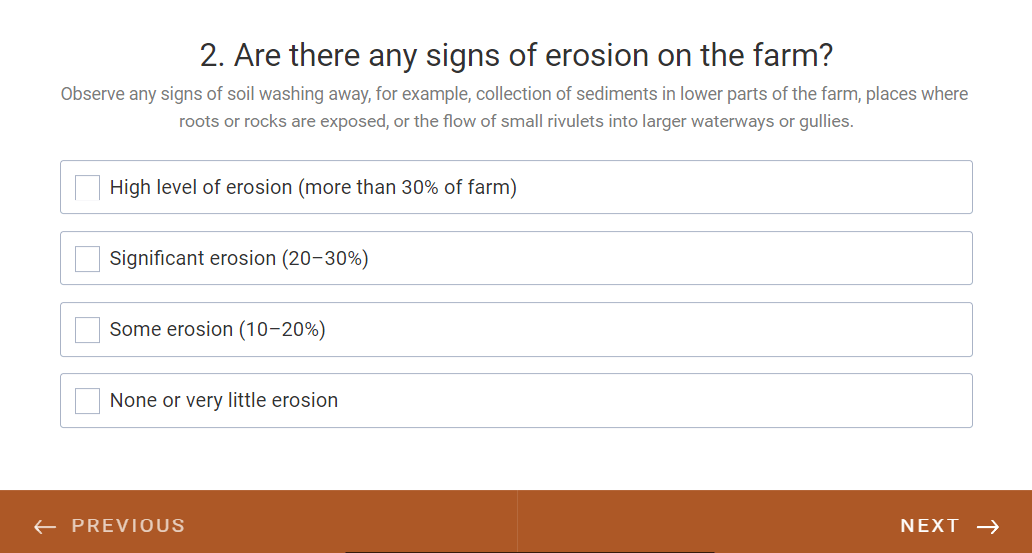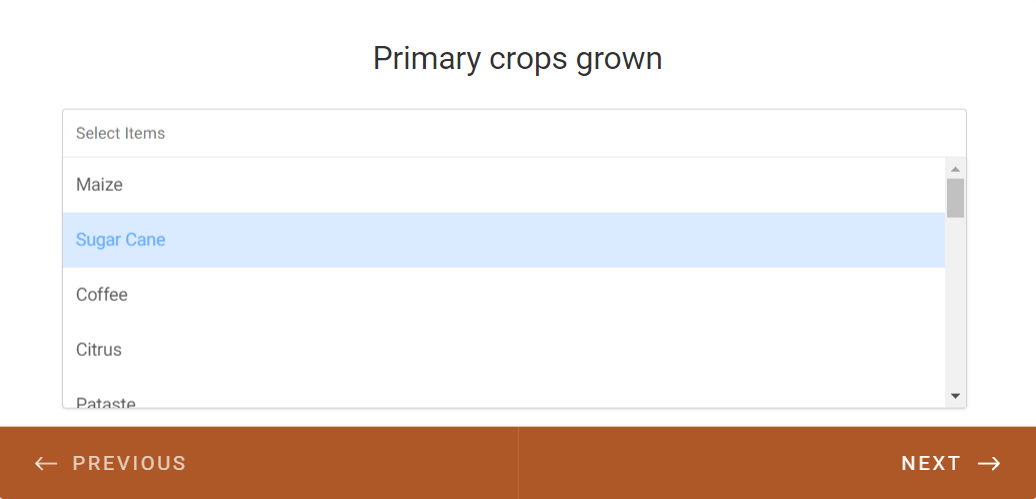99 Farmers Training Data
The 99 Farmers program begins with an objective, data-rich assessment. Each participating farmer walks his or her land alongside our Agricultural Specialist, answering questions in 3 core areas: Farm, Finance, and Home Life. This assessment generates over 100 individual data points, which are then uploaded to this dashboard in real time. The information you see displayed here is the result of hours spent in fellowship with our partners, their land, and their families.
The information we collect has a two-fold purpose. Most importantly, it helps us identify the specific and unique challenges our partners face that are keeping them from escaping poverty. Using the assessment results, we can tailor our interventions and support to address these challenges directly.
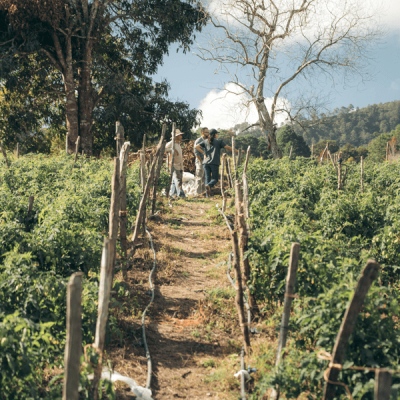
Secondly, the data we collect gives us a powerful (and extremely rare in developing countries) quantitative understanding of the region as a whole. This allows us to generate analytics and insights for large scale solutions. For example, if particular crop pests or diseases are identified as a common challenge among our participants, a region-wide custom farming solution might be preferable over an individual more costly approach.
This tailored approach allows us to accommodate for the delicate and complex ways the data points are connected and correlated. For example, a relatively low reading/comprehension score directly impacts the farmer’s ability to keep financial records, participate in selling his product, or even determine proper pesticide applications. Offering resources or training on improving any one of these practices will be unsustainable unless this farmer is also equipped with literacy assistance and support.
A Sample of Our Raw Data
This data is updated in real-time.
